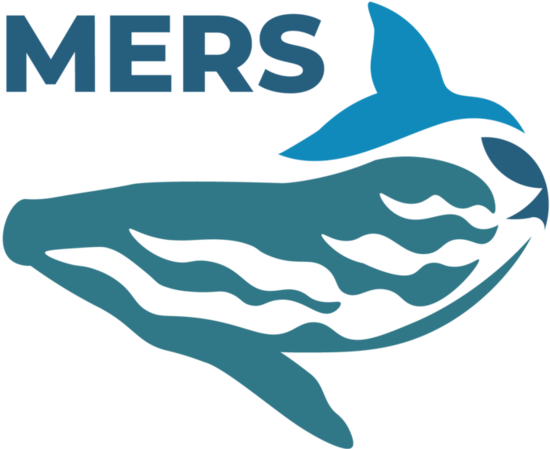
05:00 PM PDT
07:00 PM PDT
Marine Education & Research Society Auction 2022
The online auction is directed at covering Marine Education and Research Society operating costs.
Below is a list of some of the work we accomplished in the last year with less than 4 full-time positions. We hope this summary reflects how efficient and productive an organization MERS strives to be. This is possible through the support of many and, while we have been successful in achieving funding for some of our work, it remains challenging to cover operating costs.
Tips for the Auction
1) Search for items using the search function or by category above;
2) See something you like and want to keep an eye on? Click the heart icon on the item page or item thumbnail to add the item to your watchlist;
3) Use Proxy Bidding - A proxy bid allows you to enter the maximum amount you're willing to spend with the goal of winning the item at the lowest possible price. The system will bid for you, up to your maximum proxy bid amount, as additional bids are entered on the item;
4) Careful - don't wait until the last minute. Especially if you are not using proxy bidding. Auction ends exactly at 7pm on May 1st.
____________________
Highlights of work achieved by MERS in the last year
Educational and Outreach
- Working with a film crew on a nature documentary with very significant conservation messaging. Will be aired in 2023.
- Delivering an Ocean’s Day webinar for schools reaching ~ 5,000 students.
- Providing workshops / courses including:
~ Two sessions on ethical advertising conducted in partnership with the North Island Marine Mammal Stewardship Association (NIMMSA) and Tourism Vancouver Island.
~ Three-day workshop for Fisheries and Oceans Canada’s Whale Protection Unit.
~ An online Marine Mammal Naturalist Course (24 hours of instruction over 4 weeks to 63 people).
~ Workshops to be of use to First Nations re. marine mammal behaviour and boater education.
- Delivering 21 additional webinars aimed at reducing risks to whales and further marine life reaching over 1,500 viewers.
- Gap analysis toward development of an interactive, boater education course to increase knowledge of laws and best practices about vessel operation around marine mammals.
- Completion of 3 animations for our “Ocean of Good” campaign to raise awareness of, and reduce, marine debris. Campaign will be launched at the beginning of 2022. #AnOceanOfGood
- Sale of over 115 additional Whale Warning Flags.
- Strategic positioning of 25 additional “See a Blow? Go Slow!” signs to educate boaters on how to reduce risk to whales for a total of more than 400 signs now posted on British Columbia’s coast (see map at this link).
- Animations by volunteer Dawn Dudek to increase awareness of the Whale Warning Flag and See a Blow? Go Slow! campaign.
- Submission of a request for an emergency assessment of Sunflower Stars to the Committee on the Status of Wildlife in Canada (this catalyzed an unsolicited assessment being written by researchers).
- 50 interviews with media informing marine conservation issues.
- Serving as a resource to over 600 visitors to our office in Port McNeill with development of new resources to aid educational efforts there.
- Thanks to Heather Brown, contributing to town beautification and identity with a mural on our office featuring all local marine species.
Research
- Continued cataloguing of Humpback Whales in our study area including the addition of 88 previously undocumented whales.
- Over 2,100 database entries for sightings of Humpbacks in our study area.
- Coordinating the Canadian Pacific Humpback Collaboration; a collaboration of those cataloguing Humpback Whales off the coast of British Columbia. Includes database design and consolidation of datasets to develop a province-wide Humpback Whale catalogue and enable further research collaboration.
- Providing data and analysis to inform research into Humpback Whale population structure.
- Continued data collection and analysis of scars on Humpback Whales that indicate they have survived entanglement(s) and drafting a manuscript focused on the scope of this threat to Humpbacks in BC waters for publication (work conducted in collaboration with DFO).
- Continued data collection for Humpback Whale population studies and feeding strategy research and conducting year-round multi-species marine mammal surveys to inform seasonal and annual changes in distribution. Over 150 hours spent conducting surveys.
- Continued compilation of Mola / Ocean Sunfish sightings to support the study into distribution of the two species in the northeast Pacific Ocean.
- Redesigning our Humpback Whale catalogue to interface fully with our database and to make use of search criteria for distinctive features.
Marine Mammal Rescue and Response
- 5 days of monitoring commercial fisheries overlapping with areas of high whale density, to improve reporting of incidents and to respond, or provide support to rescue efforts, when needed.
- Communication / coordination for 59 marine mammal incidents, ranging from violations of the Marine Mammal Regulations to marine mammal entanglement.
About Marine Education & Research Society (MERS)
The Marine Education and Research Society is a registered Canadian charity working to reduce threats to marine mammals through research, education and response. Our efforts date back to 2004. We are based on NE Vancouver Island, British Columbia, CANADA, in the Territory of the Kwakwala-speaking Peoples.

